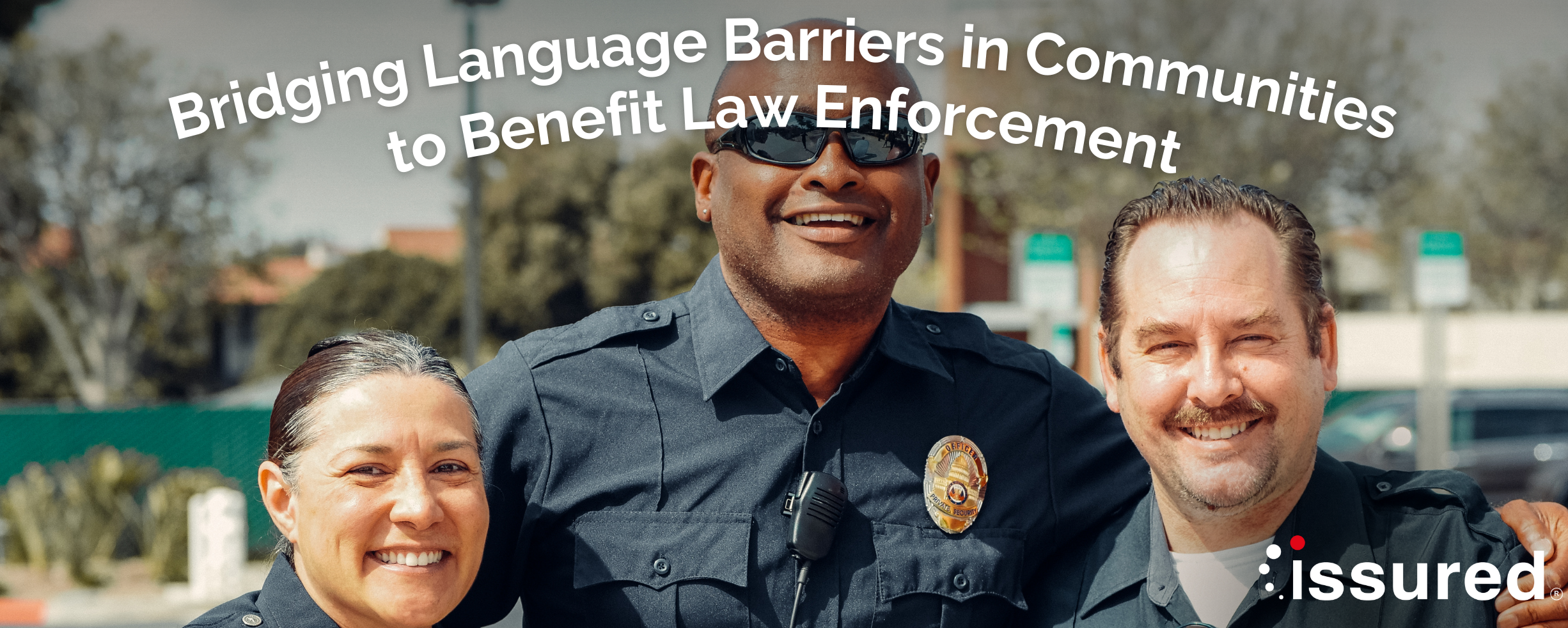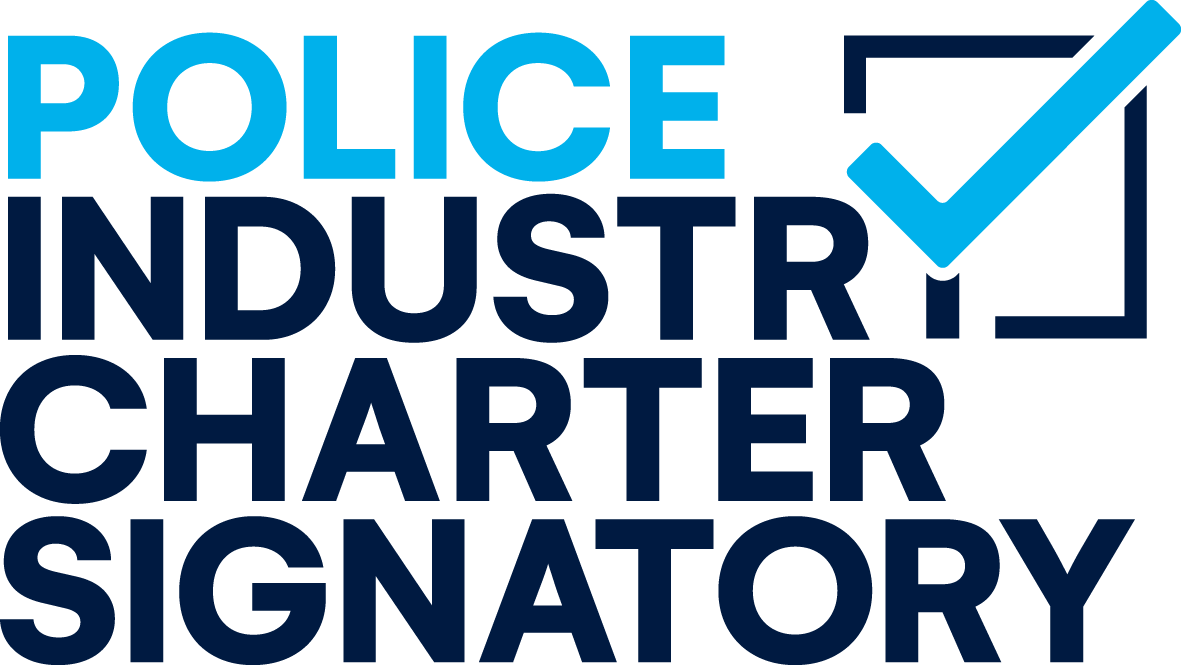
Bridging Language Barriers to Benefit Law Enforcement
Often referred to as the ‘the melting pot’, the United States is a country that hosts an array of diverse cultures and backgrounds, and with that comes many languages. In the 2020 census, it was reported that 67.8 million US residents spoke a language other than English at home (20% of population), with roughly 8% classed as LEP (Limited English Proficiency). For law enforcement to protect and serve their communities, it can become a challenge when language creates a barrier in communication, especially in time-sensitive or life threatening scenarios.
Language as a hindrance to communication isn’t a modern issue, but with the advent of technology and near-instant global communication, we are able to find methods to effectively communicate within the community. In this article we dive into language in the USA, what law enforcement are doing now to overcome adversity and a solution that uses modern technology to bridge the language divide.
Language in the USA
Since the early 1900s, mass migration to the United States has been taking place, with people from across the globe finding their way to the New World. With that, many cultures, backgrounds and languages found their way to America.
In many ways, language barriers pose multiple threats to the community and law enforcement. Firstly, when in time-precious circumstances, communication is a key tool for de-escalation which can be lost in translation. Secondly, important information or evidence may be overlooked due to a language barrier, impacting the result of law enforcement investigations. Lastly, law enforcement officers may be placed in danger if they are unable to communicate with an armed suspect, increasing the chance of potential threat to life.
These problems are exacerbated when recognising that some LEP individuals have a strained relationship with law enforcement or governmental agencies. So it is all the more important for both parties to collaborate, cooperate and communicate to ensure that the police can protect citizens and serve their community. In the next section, we dive into some of the methods that law enforcement are utilising to bridge communities and the police together.
Law Enforcement Strategies for Language Barriers
- Training
In order to make police officers aware of the variety of cultures and languages in a community, training can be employed. Often, this training includes individuals in the community, providing testimonials of their experience of law enforcement, real-life scenarios showing how miscommunication can impact the work of law enforcement. This training is designed to showcase ways in which officers can overcome language barriers, and to ensure that regardless of a person’s language, they are protected.
- Hiring Bilingual Staff
In communities that have a range of cultures, it is ideal to have a fair representation of that population in the workforce, by hiring staff that are able to speak multiple languages. To ensure that bilingual staff feel confident in their speaking ability, especially in potentially dangerous situations, training can be utilised to prepare the officers. Sworn officers that are highly proficient in multiple languages aren’t easy to attain, so police departments look to hire for civilian based roles like call dispatcher, translator and report writer.
- Developing Processes and Protocols
There are a number of benefits to putting pen to paper and creating a procedure for officers and staff to follow when interacting with people with LEP. By guaranteeing clarity and understanding between all parties, this will result in a higher chance of successful law enforcement involvement. A city in California may have a different policy to a city in Maine, but included in the policy are likely to be resources, glossaries, contacts and training for staff to use.
A Remote Solution – Mea: Connexus
The current methods of supporting all members of the community by law enforcement has been largely successful, and has proven to work. However, it is now widely known that police departments are struggling to retain staff and even get funding to recruit, especially bilingual staff. This puts a copious amount of pressure on current staff to fulfil multiple roles, including community support and ensuring they’re adequately trained.

To ease the burden on law enforcement staff, an online video interview platform can be used to communicate between police departments, translators and support workers. Mea: Connexus, a secure interview platform saves both time and money for police departments and agencies, reducing travel costs, leading to more productive meetings, as time spent travelling can be spent in remote calls. If you need to conduct a witness interview, but have no access to a translator or report writer, use Mea: Connexus to ensure the meeting goes ahead, without having to spend money on the travel for language support.
Physically visiting every crime scene and every witness is a major drain on officer effectiveness and force budgets. Worse, inevitable delays erode both the quality of recall evidence and public satisfaction with the police. In a Cambridge University research paper, the evidence concludes that response rates are 656 times faster than traditional methods of investigation, leading to a 50% increase in arrest rates.
In contrast to standard remote meeting platforms, Mea: Connexus is tamper evident, which means that if the video content is altered, you will know that a change has been made. This is especially important when conducting formal interviews with witnesses and victims, as the content of the interview is likely to be used as evidence. This enables Mea: Connexus to prove the chain custody, by incorporating Blockchain technology and high-levels of encryption to protect every single interview.
Get in touch today to find out how we can tailor Mea: Connexus to your needs.
Check out our other articles here:
Recent Posts
How can businesses truly embrace diversity and inclusion if they're overlooking a valuable group of individuals? Despite the growing awareness [...]
Creating an inclusive environment where everyone can thrive is necessary for employee satisfaction, productivity and retention. This is especially true [...]
Welcome to the world of soft skills, the secret ingredients that transform good managers into great leaders. These skills help [...]















